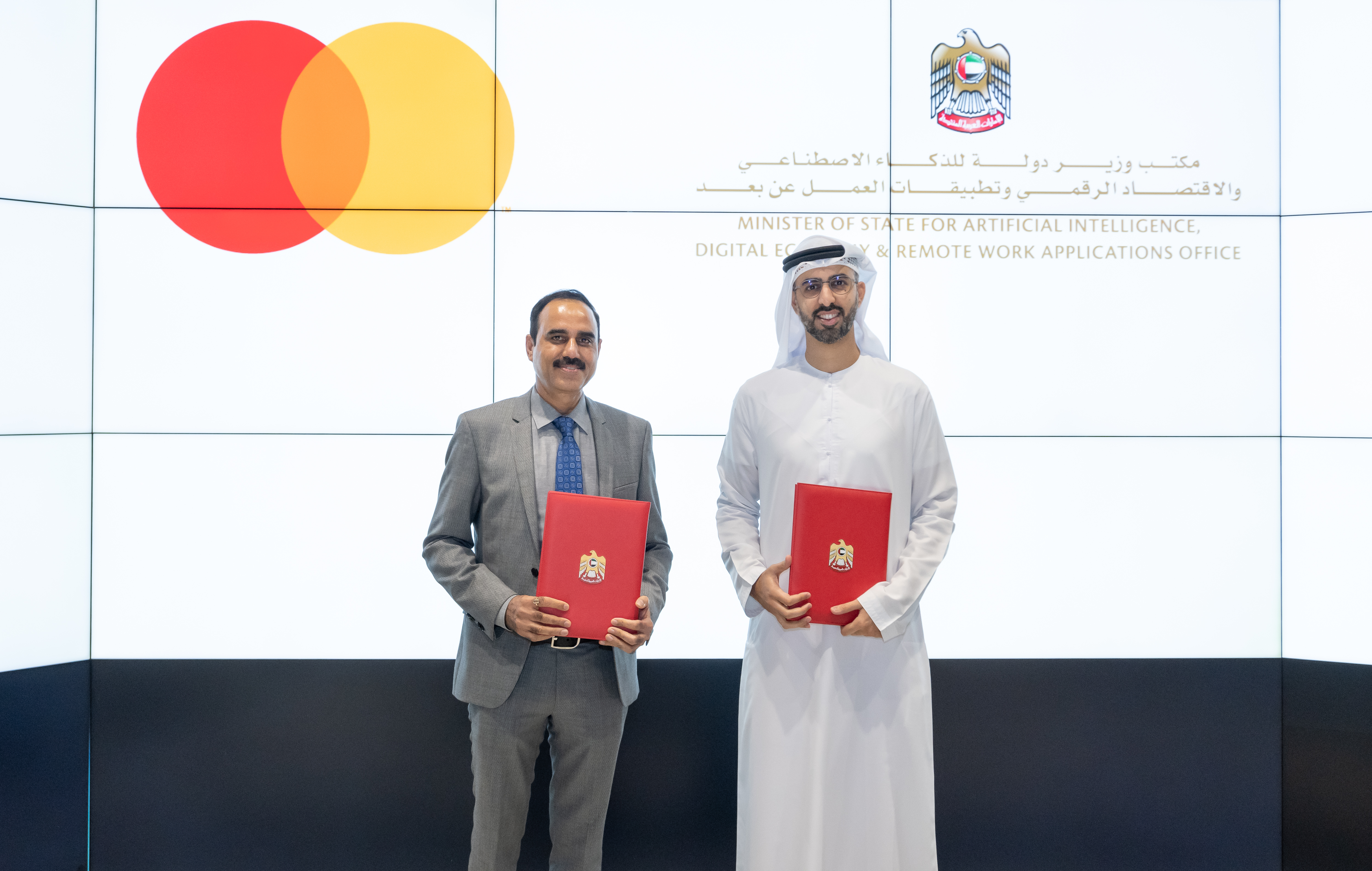Mastercard has opened a new global Centre for Advanced AI and Cyber Technology in Dubai.
The move is part of a Memorandum of Understanding between the card processor and the the United Arab Emirates' (UAE) Artificial intelligence, Digital Economy and Remote Work Applications Office.
Mastercard said the new partnership aims to increase AI capabilities and readiness in the country, adding that it would initially focus on addressing financial crime, securing the digital ecosystem, and driving “inclusive growth” in the UAE and beyond.
The new centre will support a new Innovation Hub in Dubai, where governments and businesses from across the region will collaborate on "new efforts" to support the UAE's digital transformation.
“AI plays a critical role in our operations, powering our products and fuelling our network intelligence to improve digital experiences, while reducing financial fraud and risk,” said Ajay Bhalla, president, cyber & intelligence at Mastercard. “The combination of this latest Advanced AI Centre and our partnership with the Government of the UAE will deliver greater value for our customers and ultimately reinforce trust in the digital ecosystem.”
Figures from IDC show that investments in digital transformation are expected to double over the next few years in the Middle East.
PwC estimates that AI will contribute around $320 billion to the region by 2030.
"For more than 35 years, Mastercard has been investing in the UAE to harness the power of technology for the good of the nation," said Dimitrios Dosis, president, Eastern Europe, Middle East and Africa, Mastercard. "By embracing the power of AI through this new partnership, we are ushering in the next generation of transformative technology, and actively supporting the National Artificial Intelligence Strategy 2031."
The announcement comes after the launch of three other centres located in the US, Canada, and India.
Latest News
-
Gemini to cut quarter of workforce and exit UK, EU and Australia as crypto slump forces retrenchment
-
Bank ABC’s mobile-only ila bank migrates to core banking platform
-
Visa launches platform to accelerate small business growth in US
-
NatWest to expand Accelerator programme to 50,000 members in 2026
-
BBVA joins European stablecoin coalition
-
eToro partners with Amundi to launch equity portfolio with exposure to ‘megatrends’
Creating value together: Strategic partnerships in the age of GCCs
As Global Capability Centres reshape the financial services landscape, one question stands out: how do leading banks balance in-house innovation with strategic partnerships to drive real transformation?
Data trust in the AI era: Building customer confidence through responsible banking
In the second episode of FStech’s three-part video podcast series sponsored by HCLTech, Sudip Lahiri, Executive Vice President & Head of Financial Services for Europe & UKI at HCLTech examines the critical relationship between data trust, transparency, and responsible AI implementation in financial services.
Banking's GenAI evolution: Beyond the hype, building the future
In the first episode of a three-part video podcast series sponsored by HCLTech, Sudip Lahiri, Executive Vice President & Head of Financial Services for Europe & UKI at HCLTech explores how financial institutions can navigate the transformative potential of Generative AI while building lasting foundations for innovation.
Beyond compliance: Building unshakeable operational resilience in financial services
In today's rapidly evolving financial landscape, operational resilience has become a critical focus for institutions worldwide. As regulatory requirements grow more complex and cyber threats, particularly ransomware, become increasingly sophisticated, financial services providers must adapt and strengthen their defences. The intersection of compliance, technology, and security presents both challenges and opportunities.
© 2019 Perspective Publishing Privacy & Cookies













Recent Stories